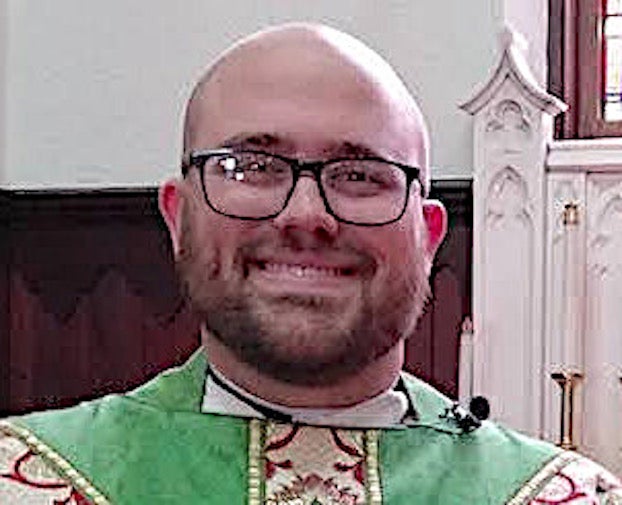Listening brings clarity to ideological battles
Published 4:20 pm Thursday, May 5, 2022
|
Getting your Trinity Audio player ready...
|
Before becoming a parish priest, I served as a full-time hospital chaplain at two different hospitals. Most of my time was spent at New Hanover Regional Medical Center in Wilmington, working with Hospice and Palliative Care. However, the most formative days of my ministry as a chaplain were the first few months of serving at UNC Medical Center where I was assigned to be the dedicated chaplain for the NICU, the Pediatric ICU, and the Labor and Delivery floor.
Have you ever been asked by a grieving mother to bring her stillborn and malformed child back to life? I have. Repeatedly.
Have you ever had to look into the grief-shattered face of someone who was convinced that they were required by Divine edict to carry a fetus to term, only to discover that the child was born with a hole in her heart and would only live for a few excruciatingly painful minutes after birth? I have.
Every day, her parents would ask me to pray for God to give her a new heart. And every day, when their child suffered a bit more as she drifted closer to death, they asked me why God didn’t give her a new heart.
For those who believe that God literally forms children within a womb, are you prepared to be committed to the idea that God carefully formed the holes in her heart for some as-yet unknown divine purpose? Sometimes, we fail to realize that the doctrines we commit ourselves to actually make God into a monstrosity. Any God who makes the conscious choice to inflict such maladies upon an unborn child is a God not worth worshipping.
And let us not forget, that when Jesus was confronted by the religious leaders of his day, who challenged him about his refusal to maintain adherence to doctrinal purity, Jesus challenged them back and chose the needs of the people first before requiring adherence to the pure doctrines of the day.
I realize people believe that eliminating abortion is an act of compassion for the unborn. But that compassion for the unborn is simultaneously an act a cruelty for those forced to bear children from violations of their own body. Would you feel good telling a 13-yeard old survivor of incestuous rape that the fetus within her is more important than her own health and well-being, both physical and mental?
Are you prepared to look at your neighbor, the one who has realized she is carrying an unviable fetus but cannot have a medically necessary abortion, and say to her, “I still think the Supreme Court made the right call”?
Thus, all of the intellectual debates about abortion, the constitution, and the Bible are really just a debate about which ‘good’ to privilege: the life of an unborn child, or the life of the one carrying the child? Setting aside the straw man arguments pundits make about liberals celebrating every abortion as an act of liberation from ‘The Patriarchy’, what is at stake if Roe v. Wade is overturned is the ability for people to have medically safe abortions based on the deliberations of their own conscience according to the needs and situations of the child bearer and the unborn fetus. Abortion will not go away. It will just become even more dangerous for people, especially those without the financial means to travel to places where safe abortions are still offered.
And let’s not forget that when debates about medical issues are the hot button issue of the day, there is a tendency to have these arguments in echo chambers of ideological purity. Thus, the lived experiences of our neighbors and family members who have, need, or desire an abortion are discounted under the guise of adherence to principle. But the voices of our neighbors cry out, and refuse to let such debates become divorced from the on-the-ground reality abortion laws will govern.
I’ll end with a story from my college days. During my freshman year at ECU, I decided to create the first Pro-Life organization on campus dedicated exclusively to ending abortion. I proudly adorned my car with ‘Abortion is Murder’ stickers and wore a shirt bearing the same slogan across campus to let people know just where I stood.
One day, I had a letter on my windshield. It was from a young woman, no older than me, who had an abortion when it became clear carrying the fetus to term would end with her death. She shared this with me and said something I’ll never forget: “You don’t know the pain I carry, both from the abortion and what led me to need one.”
That was the moment where I realized I was privileging the possibility of the life of an unborn fetus over and against the lived experiences of those who, for reasons I actually have no right to know, needed an abortion.
I took the stickers off my car and threw the shirt away. I pulled my request to have my organization chartered on campus. And I began a life of listening to those at the heart of our ideological battles. If you find yourself celebrating the news, I ask you to suspend your judgment and listen to those with whom you disagree. For then at least your decision, one way or another, can be an honest one.
Chris Adams is the Rector at St. Peter’s Episcopal Church in Washington.






